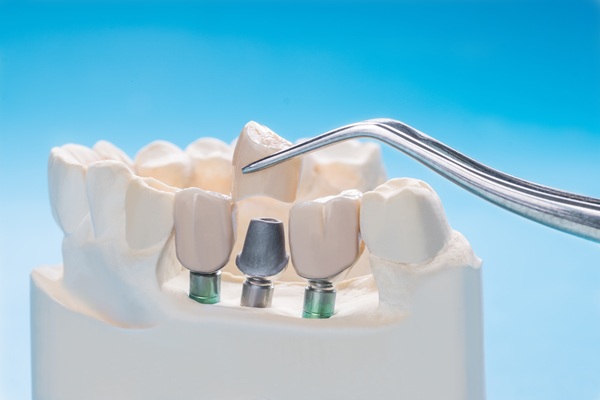 A periodontist can answer your questions about periodontitis and gingivitis. Routine dental appointments can help the dentist detect either one of these diseases. Preventing or treating them is a priority. If you want to know more about periodontitis and gingivitis, here are some FAQs and the answers from a periodontist.
A periodontist can answer your questions about periodontitis and gingivitis. Routine dental appointments can help the dentist detect either one of these diseases. Preventing or treating them is a priority. If you want to know more about periodontitis and gingivitis, here are some FAQs and the answers from a periodontist.
What is periodontal disease?
Chronic gingivitis will likely turn into periodontal disease if the person does not receive proper treatment for periodontal disease. Various types of periodontal disease can affect the many supporting tissues of teeth. This disease worsens until the anchoring part in the jaw disappears. The teeth loosen. The teeth will fall out without treatment from a periodontist.
What is gingivitis?
Gingivitis is the swelling and reddening of the gums surrounding the teeth. The inflammation causes pain. Bleeding also happens during brushing or flossing. This can result in more infection if the patient does not receive proper treatment.
What causes gum disease?
Plaque causes gum disease. It is a thin layer of bacterial film. This forms on the surface of gums and teeth daily. The only way to remove it is to brush and floss every day. It does not have to be hard brushing at all. Brushing twice a day and flossing before bed will remove the plaque layers enough to prevent infection from taking hold.
What are the causes of periodontal disease?
A patient can control some of the causes of this disease. These are diabetes, smoking, poor dental care, and heart disease. Diet modifications and lifestyle changes can help prevent and even reverse symptoms of periodontal disease. Patients cannot change heredity and age. These also cause periodontal disease.
What will happen if the patient does not receive treatment for gum disease?
Gum disease is an invisible worker. It works without pain. A person will only notice the damage when significant damage is already done. The patient experiences pain when the bacteria are active.
The gums become sore as well. This will lead to gum abscesses. The infection may cause pus to ooze out from around the patient’s teeth. Years without treatment will result in tooth loss. Gum disease will be difficult to treat at its severe stage.
How will the patient confirm the presence of gum disease?
The periodontist will run a complete diagnostic check on the patient. This involves a visual examination of the teeth and gums. Next would be the measurement of the periodontal pockets. Deep pockets will confirm the presence of periodontal disease. Digital dental X-rays will show the extent of the damage in the jawbone. The periodontist’s dental check will result in a custom-fit treatment for the patient.
How can a person prevent periodontitis?
The most effective way to prevent periodontitis is to see the periodontist for routine dental checks. Each time is a chance to have a professional dental cleaning. This type of cleaning removes plaque and dental calculus on a regular basis. Using an electric toothbrush, oral irrigator, and interdental brushes helps keep teeth and gums cleaner. A periodontist would also recommend rinsing with an antibacterial mouthwash to get into difficult spaces and kill bacteria.
Your periodontist can explain more about periodontitis and gingivitis
Gingivitis and periodontitis are common dental issues. You can ask your periodontist how often you must have a dental checkup. That way, you can work together to improve your dental health. A custom-fit prevention or treatment plan can help you regain the health of your teeth and gums.
Request an appointment or call Brighton Periodontal & Implant Dental Group at 818-703-7733 for an appointment in our Woodland Hills office.
Recent Posts
People who are seeking healthy gums but are dealing with challenges with gingivitis can see an expert periodontist, a dental professional who has studied the structures that support the teeth. These include the gums, the jawbone itself, and the ligaments that help hold the teeth in place.Periodontists are trained dentists who focus their attention on…
Periodontics focuses on gum health. Keeping your gums healthy is the main goal of every treatment. Detecting any problem early leads to early treatment. You can also do your part in caring for your gums. Here are some tips from dental professionals who work in periodontics on how to have healthier gums.Bad bacteria in the…
When we go to the dentist or periodontist, one of the last things that we expect to hear is that we need gum recession treatment. However, gum recession happens to many people for many reasons. When it does happen, it is important to get it treated properly as soon as possible to avoid further damage.…


